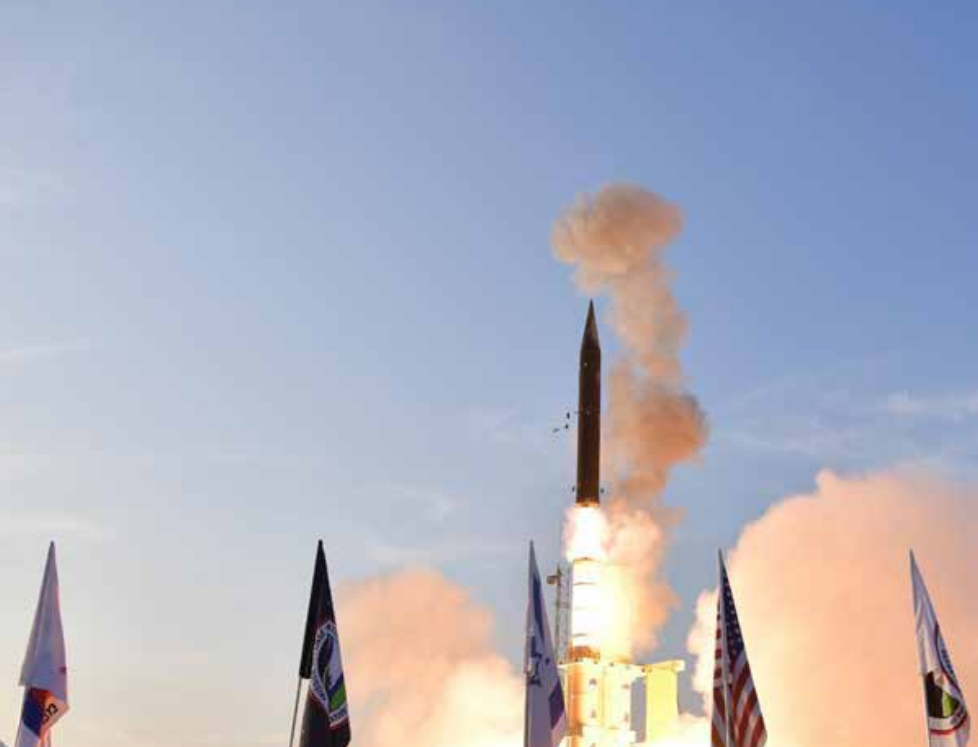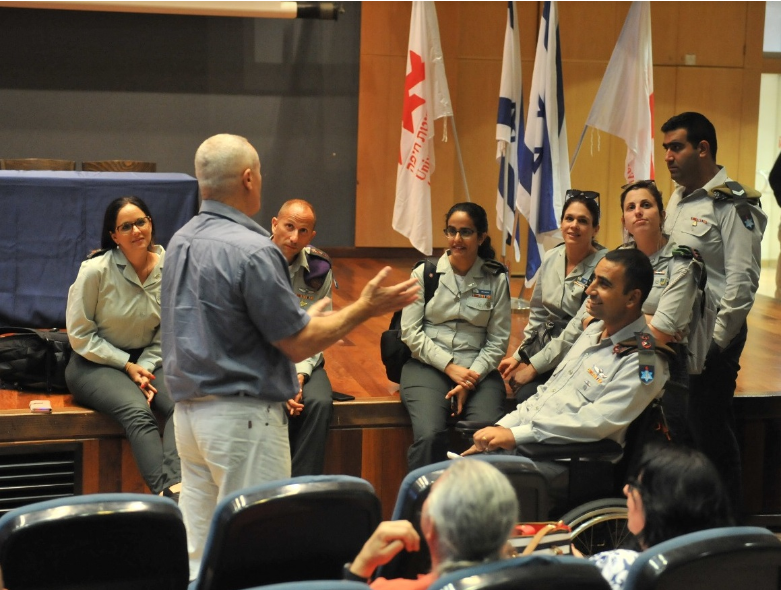Israel’s academy president wants institutions to review military links. Science|Business summarises the debate

Photo credits: Izhar Laufer / Flickr
For European academia, there’s perhaps no more burning and divisive question than whether to continue collaborating with Israel.
This summer, as pictures from Gaza of starving children and shattered cities increasingly filtered through European media, even the EU’s own diplomatic service concluded that Israel was collectively punishing Palestinians, displacing the vast majority of civilians, attacking hospitals, and maybe even using starvation as a weapon of war.
Germany, long a staunch supporter of Israel, last month suspended arms exports that could be used in Gaza. And this week, as the war escalated, a special United Nations commission branded Israel’s campaign as “genocide.”
As condemnation of the war rises, pressure is building on Israeli universities to reconsider military R&D and training programmes for the Israel Defence Forces (IDF) and domestic weapons companies. The head of the Israel’s scientific academy is calling for a review. European universities are demanding this too: Erasmus University Rotterdam, for example, recently cut ties to two Israeli universities because of their IDF links.
Israeli universities are staying quiet on whether they will review their military links. But some have defended their R&D and training programmes, arguing they’re no different from campus military ties in other countries. Indeed, hundreds of US and European universities are deeply entwined with their own governments’ defence programmes.
The question of collaboration continues to split the continent. Individual universities in countries including the Netherlands, Spain and Slovenia have said they will refuse to work with Israeli institutions as part of Horizon Europe, the EU’s €93.5 billion research programme. Israel is a full member of the programme, and has received €876 million in funding since 2021.
The European Commission has proposed suspending Israeli access to European Innovation Council Accelerator grants, which typically back start-ups. But it hasn’t yet been able to get EU countries to agree, with Germany among the states blocking such scientific sanctions.
German university heads, meanwhile, have repeatedly backed Israeli universities, describing them as a “strong liberal, democratic force” that shouldn’t be weakened with boycotts. But critics question whether they are as thoroughly liberal as claimed, and there’s now debate in Israel over whether universities have been too quiet or too slow to come out against the war.
In an August speech, David Harel, president of the Israel Academy of Sciences and Humanities, called out “all those who have the power to cry out and make a difference, but choose to remain silent, or at most to whisper,” including “heads of academic and high-tech institutions.”
But anti-war academics say they are hitting the streets in protest multiple times a week, and are keen to show overseas colleagues they are not standing idly by.
As debate over Israel’s place in European science and technology picks up, Science|Business runs through some of the key arguments – without claiming these are exhaustive – about whether collaboration with Israeli universities is ethical.
Criticism 1: Israeli universities conduct R&D for the country’s military
One chief criticism of Israeli universities is that some work hand-in-glove on R&D with the country’s military and weapons industry and, crucially, don’t appear to have reassessed these partnerships, even in light of Israel’s military conduct in Gaza.
To European collaborators, Israeli universities present a liberal face, argues Maya Wind, a Jewish Israeli researcher based at the University of California, Riverside, who last year published Towers of Ivory and Steel: How Israeli Universities Deny Palestinian Freedom, which sets out to challenge this image.
Within Israel, she told Science|Business, universities “narrate themselves as loyal to the state and to its project. They celebrate openly these partnerships with the Israeli military and military industries.” Unsurprisingly, her book isn’t uncontroversial within Israel, and has attracted academic critics and defenders.
“Woven into DNA”
Wind’s book, written largely before the Gaza war, catalogues these R&D links in detail. For example, it recounts an incident in 2008, when the chairman of Elbit Systems, one of the country’s biggest weapons manufacturers, said that “the Technion is woven into Elbit's DNA,” referring to one of the country’s leading technical universities, based in Haifa.
In its 2025 annual report, the Technion listed Elbit as one of its “guardians,” meaning that the company has “made the highest level of commitment to the Institute.”
According to reports in the Guardian and Haaretz, it was one of Elbit’s Hermes drones that in 2024 was used in an attack on aid workers for World Central Kitchen, sparking international condemnation. Elbit did not respond to a request for comment.
Meanwhile, Elbit and other Israeli weapons firms have become increasingly unwelcome in Europe. Earlier this year the company was reportedly barred from the Netherlands’ largest military trade show, along with two other major Israeli weapons firms, Israel Aerospace Industries (IAI) and Rafael.
“Forefront of defence industry”
The Technion’s links go beyond Elbit. In an interview in the university’s 2025 annual report, the chief executive of IAI, Boaz Levy, said that more than a third of the company’s engineers are Technion alumni, and the company recruited on campus.
IAI has “been collaborating with the Technion for many years, most recently on projects related to AI and space activities, and has invested in Technion laboratories and joint research,” the report explained.

In the same report, the Technion boasts of having Israel’s only faculty of aerospace engineering, which has “always been at the forefront of Israel’s worldclass aerospace and defence industry.” The Technion did not respond to requests for comment.
Beyond the Technion
Other Israeli universities besides the Technion also have military R&D links. In 2022, for example, Tel Aviv University established a joint research centre with the Israeli Air Force to “harness the world of civilian research.” The centre should “ensure the position of the Israeli Air Force as one of the leading forces in the world,” said a commander in a statement announcing the deal.
The collaboration with weapons companies goes beyond aerospace. The Weizmann Institute of Science, recently damaged by Iranian missile strikes, last October agreed a collaboration with Elbit to develop “groundbreaking bio-inspired materials for defence applications.”
Since Science|Business noted this collaboration in June, the institute appears to have taken the announcement down from its website. It did not respond to queries asking why.
The Israeli rebuttal
Although it didn’t respond to Science|Business queries about whether it would review its military links, Tel Aviv University did point out that universities all over the world have military R&D ventures, not just those in Israel.
“It is true that, as with many universities around the world, TAU’s researchers do collaborate across a wide range of industries—including defence—just as Stanford runs its Technology for Defense Program and MIT partners with the Pentagon on AI research,” it said in a statement. “The reality is that defence research is not unique to Israel, but a sad reflection that we are in an increasingly unstable global landscape.”
In 2024, Israeli universities argued military R&D was only a “small percentage” of their research and “such projects do not turn our universities into military agencies.”
Some of these collaborations with the military may also contribute to defensive rather than offensive technologies, such as Israel’s Iron Dome system, pointed out Barak Medina, a former rector of Hebrew University, in a critical review of Wind’s book. “One must evaluate these projects on a case-by-case basis,” he said.
Reassess links
Yet even if working with the military on research isn’t unusual for universities, some senior figures in Israel itself argue that, given the country’s actions in Gaza, it’s time for Israeli universities to review their military links.

“If I were a university head, I would definitely very carefully reassess all of these programmes” to make sure they are used purely defensively, rather than in Gaza, Harel, Israel's academy president, told Science|Business, referring to military R&D and training programmes for the IDF detailed below.
Of course, disentangling offensive from defensive training and R&D is incredibly difficult, he said. “I don’t envy them, the university heads,” he added. Nonetheless, Harel maintains Israeli universities should probably evaluate their links.
Criticism 2: Israeli universities train the IDF
A second, related criticism, which Wind also details in her book, is that Israeli universities train IDF soldiers and continue to do so despite the force’s conduct in Gaza.
For example, the Technion runs a special mechanical engineering programme called Brakim, designed to train “technological pioneers in the IDF and spearhead Israel’s defence establishment.”
Meanwhile, Haifa University hosts the IDF’s Military Academic Complex, combining three military colleges which “form the backbone of the IDF’s elite training programmes”, according to the university in 2018, when it was selected by the IDF.
“We are proud to open our doors to IDF forces and provide an academic home for members of the security services,” said Haifa’s president at the time. The university did not respond to a request for comment.
Uniforms on campus
Some of these programmes, which critics say amount to military bases on campus, have aroused controversy in Israel itself. One of the most contested examples is the IDF’s Havatzalot programme, since 2019 based at Hebrew University in Jerusalem, which each year trains around 50 future intelligence officers, who attend campus in uniform, in fields such as Middle Eastern studies, political science or mathematics.
The presence of uniformed soldiers on campus is so contentious than in 2020 a student group filmed the soldiers in a campus cafeteria, releasing a video that argued it made students, particularly Arabs, feel unsafe. Students have also complained about armed trainee soldiers on Tel Aviv’s campus, who attend as part of its Erez programme, which allows military cadets to earn a bachelor’s degree.

Hebrew University also runs the IDF’s Talpiot programme, which trains around 50 soldiers annually for an undergraduate degree in physics, mathematics or computer sciences, with some going on to become faculty. These students also attend in uniform, and live in special accommodation on campus. The university did not respond to requests for comment on these programmes.
Israeli universities continue to offer academic and financial benefits to students who have returned from fighting in the country’s various wars, including in Gaza, Wind points out. Last month, for example, Tel Aviv announced that new students who served “significant time” as reservists would receive special scholarships.
Erez programme
Israeli universities argue that they have a “duty” to support the “reintegration” and mental health of students who have come back from war.
In a statement to Science|Business, Tel Aviv said that its Erez programme was “largely” an initiative of its humanities faculty, and was “designed to equip young soldiers with a broader humanistic education.”
Teaching soldiers on a diverse campus allows universities to “educate future military personnel on the values of liberalism, human rights, and the importance of striving for peace,” said Medina, the former rector of Hebrew University, in a 2024 blog post.
As with defence R&D, Israel is hardly the only country that uses universities to train soldiers. But, as Harel suggests, the question now is whether these IDF university training programmes are appropriate given the force’s conduct in Gaza.
It’s not unheard of for universities to eject the military from campus to distance themselves from war. More than 70 German universities instituted so-called civil clauses, prohibiting work with the military, following the Second World War. And following protests against the Vietnam war, Harvard University threw out the Reserve Officers’ Training Corps, although welcomed it back in 2011.
Yet so far, no Israeli universities appear to be reviewing their ties in response to the Gaza war. Science|Business contacted all the Israeli universities mentioned above to ask if they would review their IDF training programmes or military R&D, but none answered the question.
Criticism 3: Israeli universities are not as liberal as claimed
One key argument against scientific sanctions is that Israel’s universities are some of the country’s most powerful liberal voices. Thus, they might help the county change course, and so shouldn’t be weakened and isolated by boycotts.
This is an argument repeatedly made by German university rectors, who have called Israeli universities a “strong liberal, democratic force.”
“Weakening Israeli academia” would “affect precisely those who raise their voices for democracy, pluralism and humanity,” said the body’s president, Walter Rosenthal, in a statement to Science|Business. A spokesman said the body was not aware of Wind’s book.
“Treated as a terrorist”
However, while there are, indeed, many liberal academics on campus in Israel, there are also at least some who have called for the expulsion of Palestinians from Gaza, or the territory’s occupation.
Uzi Rabi, a prominent scholar of the Middle East at Tel Aviv University whose career Wind’s book examines, was reported in Israeli media as saying in September last year that to defeat Hamas, the civilian population of Gaza should be removed from the north of the territory, and “whoever remains there will be treated as a terrorist.”
Related articles
- Germany and other EU states stall scientific sanctions against Israel
- European Commission wants to suspend Israel from parts of Horizon Europe
- European universities divided on Israel Horizon Europe suspension
- Don’t kick Israel out of Horizon Europe, says German universities chief
- Data corner: Israeli participation in Horizon Europe hits record low
In a subsequently deleted article published in October 2023, Eviatar Matania, a cyber security researcher also based at Tel Aviv, was quoted as saying that the Gazan population should be “transported southwards,” and the north completely destroyed.
In another reaction to the Hamas attacks of October 2023, Avi Barali, a historian of Israel at Ben Gurion University, wrote that Gazans “should be called upon to flee” as Israel began its assault on the territory. None of these three academics responded to requests for comment.
In September last year, Eyal Zisser, vice rector at Tel Aviv, penned an op-ed entitled “Occupy Gaza now,” although this was not an official university position. Moves to occupy Gaza were condemned last month by European leaders.
Zisser told Science|Business that he had argued it is “better militarily and morally to fully occupy the territory and govern it,” but only temporarily, and provide Gazans with food and medicine. Any attempts at deportation would be a “war crime,” he said.
Roof knocking
The Institute for National Security Studies (INSS), a think tank affiliated with Tel Aviv University, has also come under fire for publishing a “strategic assessment” in 2021 condoning the practice of “roof knocking,” in which the IDF justifies strikes on residential buildings by hitting them with smaller munitions first, supposedly giving civilians the chance to flee. The UN’s human rights council has found the practice ineffective and in breach of international law.
In a statement to Science|Business, Tel Aviv distanced itself from the INSS, saying it was “not part of TAU” but rather “an independent think tank that maintains an affiliation with the university.”
Criticism of the INSS are “based on selective and reductive interpretations of its work, disproportionately focusing on the views of a small, unrepresentative group of contributors,” the university said, pointing to work the INSS has done on regional peace initiatives, for example.
Academics against the war
It’s hard to know with any precision what Israeli academics think about the war. Science|Business was unable to find any polling. However, it’s also clear that many are horrified at what the Gaza campaign has become, and are increasingly speaking out.

A slew of academic groups, including the Israeli Young Academy, Feminist Researchers, and most recently Weizmann’s scientific council have called for an end to the war. Groups of Israeli economists, lawyers, and other academics have written public letters decrying mooted plans to concentrate Gazans into a small part of the strip.
Harel, Israel’s academy president, has been particularly outspoken. In a speech on August 23, he said that the war in Gaza was “no longer a war against an enemy” and instead “reeks of blind revenge, delusional messianic madness, and cruelty for its own sake,” above all driven by Benjamin Netenyahu’s attempt to stay in power as prime minister.
Protesting in the streets
To focus just on Israeli academics calling for the expulsion of Gazans would be “completely unfair,” Ruth Scherz-Shouval, until recently president of the Israeli Young Academy, told Science|Business.
“Finding the handful of academics who are calling for the war, for transfer [expulsion of Gazans], is almost like searching for the 1% of neo-Nazis in a European university,” she said. These kinds of example get “blown up” representation in the media because they are “flashy,” she said.
“Every weekend, and now in the past few months, usually two, three times a week, I'm in the streets protesting [against the war],” she said. Earlier this month, a group called Academics for Israeli Democracy published a collection of essays condemning the Gaza war, “to show the international community that we are not standing idly by.”
Institutionally, some Israeli universities have begun to raise their voices too. On July 28, the presidents of the Technion, Weizmann, Hebrew University, Tel Aviv and the Open University of Israel published an open letter in English to Netanyahu, saying “we observe with shock the harrowing scenes emerging daily from Gaza.”
“‘Could have come out earlier’”
However, the presidents of five of Israel’s ten universities - Bar-Illan, Haifa, Ben-Gurion, Reichman and Ariel - did not sign the letter.
And for Scherz-Shouval, the university presidents’ letter “could have come out earlier, and there have been discussions about that.”
Tel Aviv, however, pointed out in a statement to Science|Business that its president, Ariel Porat, has been publicly calling for attention to the humanitarian crisis in Gaza since at least early 2024. Earlier this year, he organised a symposium on the situation in Gaza, earning him the wrath of right-wing lobby groups.
For Wind, though, statements or protests by Israeli academics or institutions are “meaningless” if Israeli universities continue to offer material support to the war, through military training or R&D. “Words are not as important as actions,” she told Science|Business.
Other arguments for boycott
Other reasons, aside from Wind’s arguments about Israeli university complicity in the Gaza war, are advanced to support an academic boycott.
Some critics have argued the EU should suspend Israel from Horizon Europe primarily as a lever to pressure the Netanyahu government to change course, even if this means collateral damage for innocent Israeli academics.
Or there’s the legal argument, made by Belgian university rectors, that Israel has violated human rights clauses in its wider association agreement with the EU, which underpins the country’s association to Horizon Europe. It’s this wider breach of the agreement by Israel as a state, regardless of universities’ complicity, that’s the basis for the Commission’s proposal to suspend access to EIC Accelerator grants.
Institutional complicity?
Still, the question of institutional complicity that Wind raises remains an important question. It affects whether European academics and universities boycott entire institutions, or just steer clear of individual research projects or academics that might feed into Israel’s military.
Harel, despite his fierce criticisms of the war on Gaza, still argues that a blanket boycott of Israeli universities is wrong. Instead, European academics should decide case-by-case on whether a research project might trickle through into a military application, he told Science|Business.
The Netanyahu government will not be moved by academic boycotts, said Scherz-Shouval, quite the reverse. “Killing Israeli academia by boycotting us may actually help the judicial reform the government is driving,” she said, referring to attempts by Netanyahu to weaken the country’s supreme court.
But for Wind, including Israeli universities in Horizon Europe, academic exchanges, and other collaborations “offers legitimacy to the institution, it helps increase its ranking, which in turn begets more funding and more prestige and enables their enduring complicity,” she said.
Even as the EU remains divided on suspending the country from parts of Horizon Europe, Israeli participation hit a record low this year, which could indicate that boycotts from some parts of Europe might be having an effect. As Israel begins a fresh assault on Gaza City, the country’s future in European science hangs in the balance.





 A unique international forum for public research organisations and companies to connect their external engagement with strategic interests around their R&D system.
A unique international forum for public research organisations and companies to connect their external engagement with strategic interests around their R&D system.